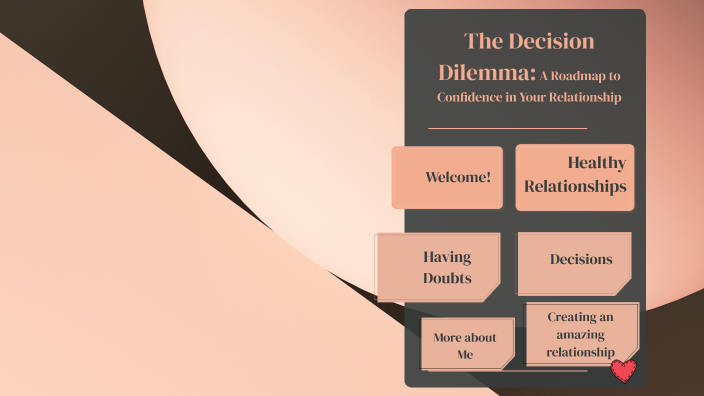How To Overcome Doubt In A Relationship

Relationship doubts, those nagging uncertainties that creep into even the most seemingly secure partnerships, are a common human experience. But how can individuals navigate these turbulent waters and emerge with a stronger, more confident connection?
The key lies in open communication, self-reflection, and a willingness to address the root causes of these insecurities, relationship experts say. Understanding the nature of doubt and proactively addressing it is crucial for fostering lasting love.
Understanding the Source of Doubt
Doubt in a relationship rarely arises in a vacuum. It often stems from a combination of factors, including past experiences, individual insecurities, and external pressures.
Dr. Anya Sharma, a licensed marriage and family therapist, emphasizes the importance of self-awareness. "Before you can address doubt in a relationship, you need to understand where it's coming from. Is it triggered by something your partner is doing, or is it rooted in your own past experiences with betrayal or abandonment?"
Other common sources of doubt include mismatched expectations, unmet needs, and a lack of communication about important issues. External factors, such as financial stress or family conflicts, can also contribute to feelings of uncertainty.
Communication is Key
Open and honest communication is the cornerstone of any healthy relationship, but it's particularly vital when dealing with doubt. Suppressing feelings of unease can lead to resentment and further erode trust.
Instead, experts advise initiating conversations with your partner about your concerns, using "I" statements to avoid blame and defensiveness. For example, instead of saying "You never listen to me," try "I feel unheard when..."
John Gottman's research, renowned in the field of relationship studies, underscores the importance of active listening and empathy. Creating a safe space where both partners feel comfortable expressing their vulnerabilities is paramount.
Cultivating Self-Esteem
Sometimes, doubt in a relationship reflects underlying insecurities within oneself. A lack of self-esteem can lead to feelings of unworthiness and a constant fear of being rejected.
Engaging in activities that boost self-confidence, such as pursuing hobbies, practicing self-care, and setting achievable goals, can help alleviate these feelings. Therapy can also be beneficial in addressing deeper issues related to self-worth.
Remember, a healthy relationship starts with a healthy individual. Working on your own well-being will not only benefit you personally but also strengthen your connection with your partner.
Seeking Professional Help
When doubt persists despite efforts to communicate and address the underlying issues, seeking professional help is often the best course of action. A therapist can provide a neutral and objective perspective and help couples develop effective communication strategies.
Couple's therapy can provide a safe and structured environment to explore complex emotions, identify patterns of behavior that contribute to doubt, and learn new ways to connect with one another. The American Association for Marriage and Family Therapy (AAMFT) offers resources for finding qualified therapists in your area.
Remember that seeking help is a sign of strength, not weakness. It demonstrates a commitment to the relationship and a willingness to work through challenges together.
The Impact of Overcoming Doubt
Overcoming doubt in a relationship can have a profound and positive impact on both individuals and the partnership as a whole. It fosters greater trust, intimacy, and emotional security.
A 2022 study published in the Journal of Social and Personal Relationships found that couples who effectively address their doubts report higher levels of relationship satisfaction and commitment.
By proactively addressing doubt, couples can create a more resilient and fulfilling partnership that can withstand the inevitable challenges of life. It is a continuous process that requires ongoing effort and commitment from both partners.
Ultimately, navigating doubt successfully requires a willingness to be vulnerable, honest, and compassionate with both yourself and your partner. The rewards are a deeper, more meaningful connection that can weather any storm.


















